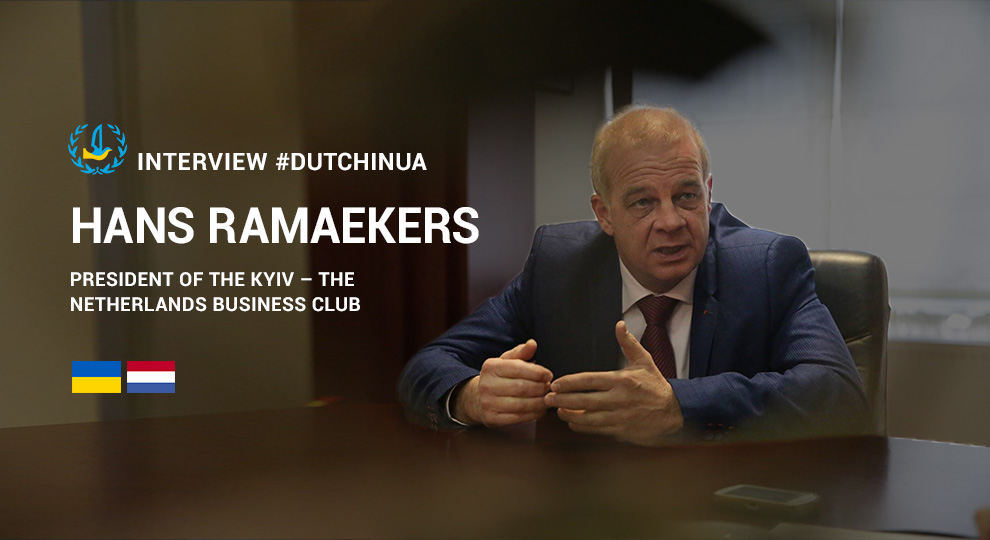Do you keep seeing “PrivatBank” in news reports about Ukraine? During the night of 19-20 December, Ukraine’s largest bank in terms of total assets, belonging to oligarchs Ihor Kolomoyskyi and Hennadiy Boholiubov, was nationalized by the government of Ukraine. Here is why this event has caused so much noise.
1. PrivatBank is the largest commercial bank in Ukraine
PrivatBank is the largest commercial bank in Ukraine. As written on its official page, in the third quarter of this year 51.4% of Ukrainians over 16 years of age are cooperating with the bank. 42.6% of bank users consider it to be their main bank. Among the 20 millions of clients of the bank, there are 3.2 million pensioners, 500,000 students, and 1.6 million from other socially vulnerable groups receiving state benefits. 56.1% of corporate entities are working with the bank. 33.5% consider it to be their main bank. 69.7% of entrepreneurs chose PrivatBank and 62.3% consider it to be their main bank. These numbers show that the fate of the bank will affect every second adult in Ukraine.
2. Nationalization explained by dangerously low lack of capital
According to the Head of the National Bank Valeriya Hontareva, in April 2015 the lack of capital of the bank was equal to UAH 113 bn ($4.3 bn). By 1 September 2016, it was already UAH 148 bn ($5.6 bn). It is explained by unpaid insider loans.
Also, Hontareva said that 97% of the corporate portfolio of the bank was given to the insider structures of the Privat financial and industrial group. This year the bank has nearly failed to fulfill its mandatory reserves.
“A bank can be liquidated or nationalized, the owner can pay in the necessary capital or he can choose to do nothing. As PrivatBank is a systematically important institution it can not be liquidated. The social effect and the impact on the financial system would too great,” explained Serhiy Fursa, the specialist of the Sales of debt securities of the Dragon Capital.
Also, the Finance Minister of Ukraine, Oleksandr Danyliuk, told the 5 Kanal TV station that the nationalization of the bank was one of the IMF’s conditions for receiving the next tranche.
3. Bank blames information attacks
Rumors about PrivatBank’s nationalization came up in Ukrainian media occasionally in the previous months. However, the representatives of the bank attempted to debunk them as myths intending to raise panic among the bank’s clients.
“The next information attack on the largest Ukrainian bank PrivatBank related to the ‘pseudo nationalization’ of the bank is primarily focused on the bank's clients and is an attempt to destabilize the political situation in the country,” said a statement on the bank’s official site a few days before the nationalization.
After the news about the nationalization, the CEO of the bank Dmytro Dubilet (the son of the Chairman of the Board of the bank Oleksandr Dubilet) stated that the decision from the bank was made because here was no other choice:
“Since the war started, our bank has experienced seven information attacks. Any other bank would not have survived any of them. But the latest attack, which started a week ago, was the most severe. Every day we broke the records on the number of funds issued by panicked clients at ATMs and branches. By the way, on Saturday, when the panic started to diminish, the Inter Channel made a control shot in the evening news: ‘On Monday, PrivatBank will suspend all payments. However, we have not received any confirmation or refutation of this information from the bank's press service. Actually, the decision on the voluntary and peaceful bank transfer to the state possession was made at the exactly moment when we realized that we will not survive after this information attack and that our clients are under threat.”
4. Additional burden to lay on taxpayers
The experts, no matter whether they are for or against the nationalization, agree that the burden will now lay on the Ukrainian taxpayers.
“This is the biggest robbery of the Ukrainian state budget of the millennium. Who will pay for it? Who will pay 150 billion? Surely the people will pay through the country's budget,” claimed the Head of the Samopomich faction Oleg Bereziuk.
Dragon Capital Olena Bielan expert estimates that the privatization of PrivatBank can raise the national debt to 85% from the GDP. The Ministry of Finances has already announced issuing of bonds amounted UAH 43 bn ($1.6 bn) as a first tranche for the capitalization of the PrivatBank. Bielan notes that the bonds will be converted to money only if the population starts panicking and withdraws a large amount of the deposits. If this doesn’t happen, the currency exchange rate and inflation should not be affected.
Also, the government initiated a bill which guarantees the return of deposits for citizens over the ordinary insurance amount of UAH 200,000 ($7,568).
5. Shady deal suspected between bank's stakeholders and government
The Ukrainian online newspaper Ukrainska Pravda writes that the most important detail of the agreement between the bank and the state is that the government will deny that the shareholders of the bank pulled out nearly $2 bn from Ukraine in 2014, in accordance with import contracts. According to the outlet’s sources, the shareholders will not return this money. Moreover, they received guarantees from the authorities on this. The law enforcements will not condemn them for causing losses to the state on such a large scale.
According to the media, the government’s silence about these withdrawals was a significant component of the "price" of the bank’s voluntary transfer to the state.
"The bottom line is that Kolomoiskyi, in alliance with the Presidential Administration, extorted billions from the bank, these billions were pumped into offshore companies. This was going on for at least two years, and the National Bank through the Presidential Administration was well aware of it," said Mikhael Saakashvili, ex-governor of the Odesa Oblast and now the leader of a new political force in Ukraine.
Kolomoyskyi dismissed these allegations as the “ramblings of a madman.”
What else should I know about it?
- It is expected that the former Ukrainian Minister of Finances Oleksandr Shlapak will head the bank. According to the Minister of Finances, Privat24, the internet service of the bank, will work as usual.
- Ukraine's dollar-denominated bonds jumped by more than 1 cent on Monday after the government said it would nationalize PrivatBank.
- As a rule, Ukrainian society doesn’t expect anything good to come from any kind of nationalization, fearing that the team of the President Petro Poroshenko will privatize all significant enterprises of Ukraine.
- The course for “deoligarchization” proclaimed by President Poroshenko, in reality, turned out to be a war against one oligarch, Ihor Kolomoyskyi, Privat’s former owner. However, Kolomoyskyi is not the #1 oligarch in Ukraine. The richest one, Rinat Akhmetov, whose main interests are energy, metallurgy, and telecommunications also made Ukrainians dependent on his monopolies in the energy sector. For some reason, he so far has not faced any major pressure from the Ukrainian government.
- According to political analyst Vitaly Bala, the risk of PrivatBank’s collapse became a source of political power for Kolomoiskyi. The Dnipro-born oligarch would threaten to default on the bank’s debts to keep the government from passing legislation that could cut into his business, Kyiv Post reported.
Related:
Oligarchs: good old buddies who own Ukraine | #UAreforms
Sunset and/or sunrise of the Ukrainian oligarchs after the Euromaidan
New law may be the end of oligarch-controlled politics in Ukraine




